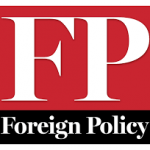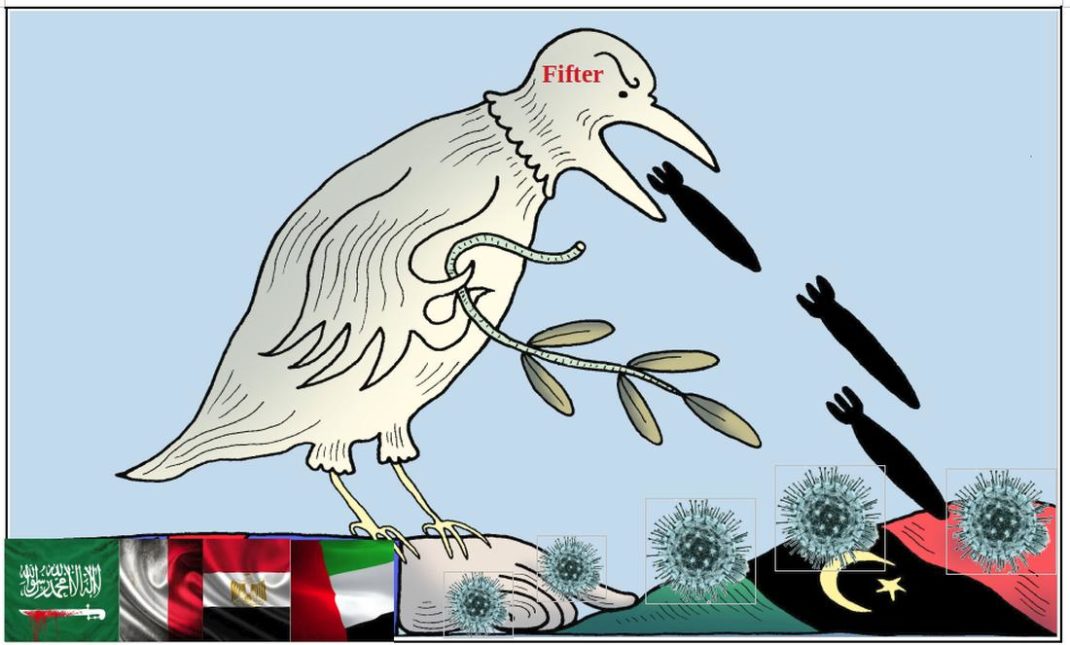By Edward Joseph & Wolfgang Pusztai

 The pandemic might prompt the kind of cooperation needed to end the country’s civil war, after years of fighting and foreign intervention failed.
The pandemic might prompt the kind of cooperation needed to end the country’s civil war, after years of fighting and foreign intervention failed.
What happens when a pandemic hits a civil war? Libya is about to find out, and the answer could be catastrophic. With fighting raging around Tripoli and south of Misrata—inflicting hundreds of casualties—mistrust, animosity, and division are at their peak just as coronavirus hits the country.
Approximately 150,000 people are displaced by the fighting, many living in makeshift communal shelters ideal for spreading contagion. Thousands more migrants and refugees are crammed into deplorable camps.
Desperately needed materiel and the funds to procure medicine and other supplies are bottled up because of the conflict. By the time the pandemic reaches the young, relatively isolated fighters on both sides, it could be too late for the vast majority of Libya’s citizens, who are now largely defenseless against the virus.
It’s obvious that the sides need to stop fighting and start cooperating, but a broad humanitarian appeal from U.N. Secretary-General António Guterres and a tailored request from U.S. Ambassador to Libya Richard Norland have so far fallen on deaf ears. There is still time to galvanize Libya’s factions into cooperation—but only if diplomats urgently craft a plan built around the country’s shared fate amid the pandemic. The coronavirus could bring peace to Libya where years of international diplomacy have failed.
The main reason that fighting continues is that each side believes it is on the cusp of victory—and is convinced that a pause will be exploited by the enemy to replenish its supply of weapons, ammunition, and fighters. Boosted by a surge in materiel and manpower from Turkey, the Government of National Accord (GNA) in Tripoli believes it can cut the overextended supply lines of its foe, Field Marshal Khalifa Haftar, causing the collapse of his Libyan National Army (LNA) coalition. As of this writing, pro-GNA forces are pressing toward the LNA’s key logistics hub.
Meanwhile, the LNA, thanks to superior firepower and some support of the local population, has made a string of gains across Libya’s western coast and sits only six miles south of Tripoli’s central Martyrs’ Square. Haftar believes that if he can continue to inflict high numbers of casualties on his opponents, Tripoli’s defenses will collapse.
The delusions of the two sides might be manageable if not for the shared anxieties of their backers. Turkey, which supports the government in Tripoli, and the United Arab Emirates and Egypt, which stand behind Haftar, are united in their determination to stave off the collapse of their respective clients.
Contrary to common understanding, Ankara, Abu Dhabi, and Cairo all have interests in Libya that go beyond regional rivalry. Turkey has maintained a significant commercial relationship with Libya going back to the Ottoman era, continuing throughout the dictatorship of Muammar al-Qaddafi to the present day. Turkish companies are owed large sums from Libya which they stand to forfeit if the government in Tripoli collapses.
For their part, the UAE and Egypt cannot abide a scenario where Tripoli deals a decisive defeat to the LNA. In their eyes, this would mean the resurgence of Islamist organizations which the harried GNA has, to some degree, relied on for support.
In late January, all three countries—Turkey, the UAE, and Egypt—along with other involved states signed in Berlin an international accord on Libya, promising, above all, to respect the U.N. arms embargo on the country. True to form, none of the three honored its commitments and the so-called Berlin process, like other diplomatic bids on Libya, lies in tatters.
In this scenario, boiling with perceived existential risk, it is no wonder that Guterres’s humanitarian appeal for a cease-fire has been ignored. Norland misfired by calling on one side—Haftar’s—to halt the fighting, when the truth is that both sides have broken the previous cease-fire. No matter what blame Haftar owns for the ill-advised assault on Tripoli he launched one year ago, now—with the disease poised to spread—is not the time for naming and shaming. Nor is there any use making hoary references to a diplomatic “framework” that is not respected.
A much more realistic approach is desperately needed and, fortunately, available. In a divided country with two governments, two central banks, and separate, degraded health systems, there is at least common acceptance of the National Centre for Disease Control (NCDC) in Tripoli.
This inoffensive entity can and should become the focal point for all coronavirus cooperation between western and eastern Libya—and the focal point for the international community to channel its messaging and support. The fact that the NCDC is based in Tripoli should ease any concerns among diplomats about departing from the convention of recognizing the beleaguered GNA— without at the same time antagonizing the LNA.
With support from the U.N. mission to Libya, the NCDC should urgently convene a national “coronavirus crisis committee” comprising key experts and officials from all three of Libya’s regions. (Despite the fighting, Libya has the means, augmented with modest outside assistance, to conduct virtual meetings.)
Backed by direct U.N. support, the NCDC would quickly become the central coordinator of efforts to identify critical deficits, allocate distribution of supplies, and set standardized, pandemic-related regulations such as on curfews, which have been imposed haphazardly and are poorly respected.
Each side would be asked to take one additional humanitarian gesture. Eastern Libya should allow a limited, agreed amount of oil to flow in order to directly support the fight against the coronavirus. In turn, western Libya would agree that the earmarked revenues from the oil would enter the Central Bank of Libya under strict U.N. oversight and be disbursed as directed by the NCDC, on the basis of need and equity.
This approach has much more chance of success than the current appeal for an open-ended, full-scale return to oil production, with the promise of an audit. Citizens in eastern Libya are far too suspicious of chicanery in Tripoli to go for such an option.
For their part, Turkey, the UAE and Egypt would be asked to engineer equitable, agreed delivery of medical and humanitarian assistance to Libya, coordinated through the U.N. This, too, is more realistic than beseeching the parties once again to abide by their repeated, routinely broken promises to honor the U.N. weapons embargo on Libya.
In this plausible way—free from strident condemnations or exaggerated demands—war-torn Libya could see overnight improvement in its pandemic defenses. The moment cooperation begins, the prospects for a meaningful cease-fire will improve markedly. With some luck and goodwill, the need to fight a common viral enemy might lead to a halt in an internecine struggle that has gone on far too long.
***
Edward P. Joseph is adjunct professor and senior fellow at Johns Hopkins School of Advanced International Studies.
Wolfgang Pusztai is a security and policy analyst with a special focus on the MENA region. He is the chairman of the advisory board of the “National Council on U.S.-Libya Relations,” and a director of the California-based advisory company Perim Associates.
___________





